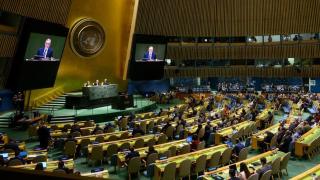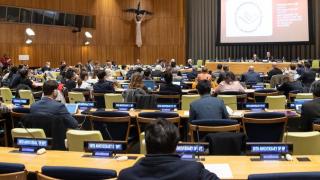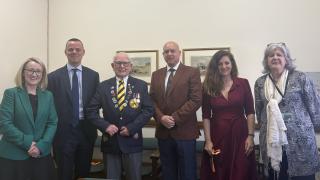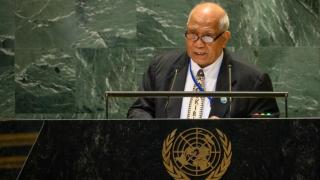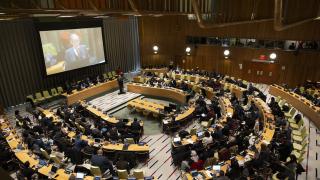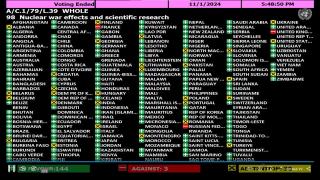
On November 1, the UN General Assembly voted overwhelmingly to launch an independent scientific panel to examine the effects of nuclear war, the first such review since the 1980s.
In total 144 states voted in favour of the resolution, including China and eight NATO allies, however the UK, along with France and Russia, voted against it. The resolution, introduced to the UN First Committee on 15 October, was put forward by a diverse coalition of 20 countries, spearheaded by Ireland and New Zealand. It will initiate an international scientific investigation into the effects of nuclear war, involving the creation of a panel of 21 scientific experts tasked with providing comprehensive and current findings to be presented in 2027.
Concerningly, the UK's vote against this resolution raises questions about the UK’s commitment to its non-proliferation obligations and unnecessarily risks its standing and reputation by choosing to isolate itself from the wider global community so starkly. In an explanation of the UK’s vote, David Riley said that “a panel of the type proposed could not produce “new” evidence. It cannot advance us towards our collective long-term goal of a world without nuclear weapons.”
This view from the government is short-sighted - researching the effects of nuclear war is vital for understanding its catastrophic consequences on human health, the environment, and the global climate. It provides crucial, science-based data that can guide informed policymaking, strengthen arms control efforts, and promote global security. By revealing the long-term risks, such as radiation, genetic mutations, food shortages, and a potential nuclear winter, this research helps deter nuclear conflict and supports disarmament initiatives. It also serves an ethical imperative to ensure that future generations are protected from the devastating impacts of nuclear weapons. Ultimately, such research is essential for preventing nuclear war and safeguarding global peace and stability
Specifically the panel will be responsible for “examining the physical effects and societal consequences of a nuclear war on a local, regional and planetary scale, including inter alia the climatic, environmental and radiological effects, and their impacts on public health, global socio-economic systems, agriculture and ecosystems, in the days-weeks-decades following nuclear war, and that it reviews and commissions relevant studies, including modelling where appropriate, and publishes a comprehensive report, makes key conclusions, and identifies areas requiring future research”.
This is not the first time the UK has found itself, along with France and Russia, so plainly isolated in the General Assembly. At the end of last year, the UK voted against a resolution aimed at addressing the effects of past nuclear testing. The UK’s consistent opposition to UN nuclear disarmament resolutions undermines global efforts to reduce nuclear risks, promote international security and set a leading example for non-proliferation.
Given the UK’s poor track record of addressing the harms - both environmental and socioeconomic - of its historic nuclear testing, it is striking that the government assumes that this research would not be necessary. By opposing this resolution, the UK is failing to acknowledge the profound and far-reaching consequences of nuclear war and the need for up-to-date, independent scientific research to this effect. At a time when nuclear posturing continues unabated the UK must urgently rethink its reluctance to confront the existential threat posed by nuclear weapons and instead go further to uphold its non-proliferation obligations and support global efforts on nuclear deterrence.
Read more:
- Read a letter from MPs urging David Lammy to reconsider
- Read another instance of the UK voting against a UN nuclear resolution in 2023
- Read UNA-UKs letter to the UK government encouraging it to stop neglecting its nuclear responsibilities
- Read UNA-UK and Article 36’s briefing on addressing British nuclear testing in Kiribati
- Read Dr Becky Alexis-Martin’s latest blog for UNA-UK on nuclear testing


